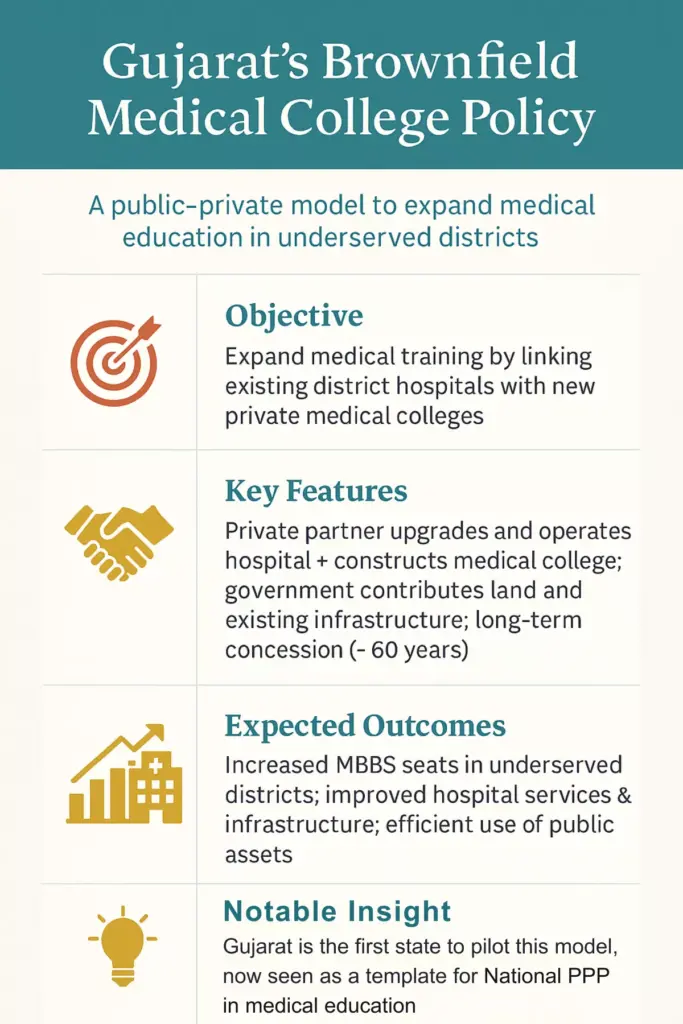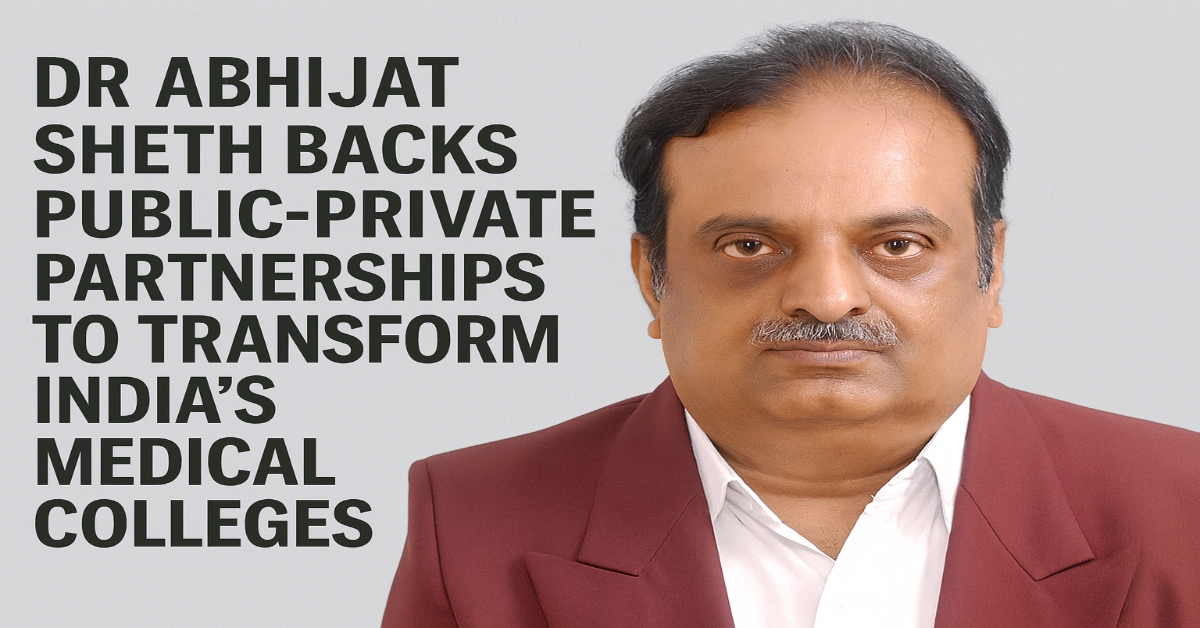NMC Chairman Backs PPP in Medical Education: During his recent visit to Hyderabad, Dr Abhijat Sheth, Chairman of the National Medical Commission (NMC), strongly endorsed public-private partnerships (PPP) as “the way forward” for India’s medical education sector. Citing Gujarat Brownfield Medical College Policy, he described how struggling district hospitals have been converted into thriving medical education hubs with private sector collaboration.
“Many district hospitals are now being upgraded by private players to serve as medical education hubs. Thousands of patients are receiving quality care. For private partners, this is more about recognition than profit, and it helps utilise their CSR funds effectively. It is a win-win for both public and private sectors,” said Dr Sheth at the inauguration of the renovated Indian Medical Association (IMA) office at Koti, Hyderabad.

NMC Chairman Backs PPP in Medical Education: Key Highlights
Dr Sheth outlined several benefits of PPP in medical education:
- Increased Access to Medical Education: PPP allows rapid expansion of MBBS and postgraduate seats.
- Upgraded Infrastructure: Private partners invest in modernising hospitals and medical colleges.
- Better Resource Utilisation: CSR funds can be used meaningfully to improve healthcare education and services.
- Competency-Based Education & Digital Learning: The NMC plans to integrate modern training methods to improve the quality of doctors.
- National Exit Test (NExT): A unified exam for licensing and postgraduate admission, aimed at assessing practical and clinical skills more effectively. But he did not answer on why the NExT exam is being delayed or when it will be conducted.
Critical Concerns: Impact on the Poor and Risk of Monopoly
Financial and Accessibility Concerns for Students
While the NMC highlights the potential of PPPs, critics caution that higher tuition fees charged by private partners could make medical education out of reach for low-income students.
The commercialisation of hospitals into medical colleges may also shift focus from public health priorities to revenue generation, limiting opportunities for those who cannot afford steep fees.
Read Also: India’s Public Health System Fails the Poor: Study Highlights Urban-Rural Gaps
Monopoly Risks and Unequal Healthcare Access
Large private players managing multiple medical colleges could create monopolies in medical education, controlling seats, faculty, and infrastructure, which reduces competition and drives up costs.
Additionally, patients in regions without PPP hospitals may face slower healthcare improvements, while private-run centers attract the best resources and talent, worsening inequality in access to quality care.
Without strict regulation on fees and admissions and without implementing the NMC fee guidelines as established in the NMC Act 2019, PPP models risk prioritising profit over public interest.
A recent Edufever analysis of PPP in Medical Education points out that PPP models, while useful for infrastructure upgrades, risk prioritising profit over public interest. Without strict regulation on fees and admissions, the most vulnerable could be priced out of medical education and quality healthcare.
Read Also: NMC Approves 123700 MBBS Seats & 808 Medical Colleges: India Beats the World in Medical Education
Addressing Quality Gaps
Dr Sheth acknowledged significant gaps in quality, particularly in states like Telangana, Karnataka, and West Bengal:
- Shortage of qualified faculty
- Insufficient clinical infrastructure
- Poor integration of digital and competency-based education
He suggested, to bridge the gaps in the medical education system of India, solutions like mentorship programs by senior and retired faculty, sharing resources between public and private institutions, and allowing and enhancing postgraduate training opportunities.
Recently, NMC also allowed MSc/PhD as 30% of the faculty in 5 medical subjects amid protests from the doctors’ group.
Read Also: NMC MBBS Expansion 2025: Why 808 Colleges & 123700 Seats Can’t Fix Broken Medical Education System?
Tackling Quackery and Corruption
Hyderabad and rural Telangana face rampant quackery, with an estimated 55,000-60,000 unauthorised practitioners. Dr Sheth clarified that enforcement is the responsibility of state governments and councils, but NMC sets the regulatory guidelines.
| According to Wikipedia, Quackery, often synonymous with health fraud, is the promotion of fraudulent or ignorant medical practices. A quack is a “fraudulent or ignorant pretender to medical skill” or “a person who pretends, professionally or publicly, to have skill, knowledge, qualification or credentials they do not possess. |
Regarding the ongoing CBI investigation on bribery allegations within NMC inspections, Dr Sheth confirmed staff suspensions and promised systemic reforms to strengthen transparency and accountability.
Read Also: MBBS Admission Scam 2025: ED Finds 18000 Fake NRI Quota Documents
NMC’s Balancing Act
Dr Sheth’s visit highlights the NMC’s push for PPP to expand medical education capacity and quality. However, critics argue that without strict oversight, this approach could exacerbate inequality, favour wealthy students, and concentrate control in a few private hands, creating monopolies in medical education.
While PPP offers a potential solution to the growing MBBS doctor crisis in India, its success will depend on balancing private investment with affordability, accessibility, and strict regulatory safeguards.

